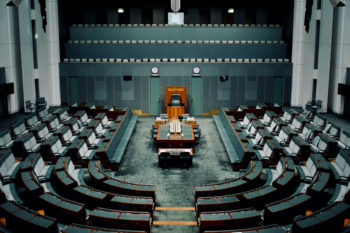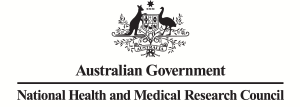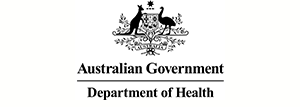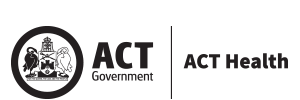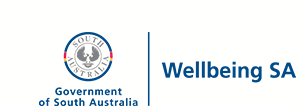Perceptions of prevention: What does the Australian community think?

Status completed
Start Date
End Date
In Australia, there has been little research conducted to better understand community knowledge and attitudes regarding people’s understanding of prevention and of policies and programs to improve lifestyle-related chronic disease.
This project conducted three national population surveys (AUSPOPS) to quantify community attitudes and values towards government intervention for chronic disease prevention.
Introduction
This research increased our understanding of community awareness, attitudes and values regarding chronic disease prevention policies and programs, which is key to optimising communication and formulation of public health action. Download the second national report, the AUSPOPS 2018: Tasmanian report, and other resources from our Featured Resources section below.
Our research impact
Featured project resources
-
Community perceptions of NCD prevention 2016 to 2018: An increasing appetite for government leadership?
Resource category:Videos
Date -
AUSPOPS shows how measuring public opinion can drive public health action
Resource category:Findings Brief
Date -
AUSPOPS Third national report 2016-2021
Resource category:Reports
Date -
AUSPOPS 2016–2018: Second national report
Resource category:Reports
Date
Featured project news
-
Community mandate continues for government health interventions
News Category: Media releasesDate -
AUSPOPS proves popularity of prevention
News Category: Prevention Centre NewsDate -
Building the case for prevention. What can political science add?
News Category: Prevention Centre NewsDate
About
AUSPOPS - AUStralian Perceptions Of Prevention Survey
Project titleWhat is the issue?
There is debate currently about what role the government should play in regulation for preventive health. Some commentators view government regulation and health promotion activities as constituting a ‘nanny state’ that is overly controlling of individual choice and freedom regarding their health. Determining the right balance of government intervention and personal choice is a challenging issue for complex problems such as the prevention of lifestyle-related chronic disease. Therefore, gaining a better understanding of community awareness, attitudes and values regarding chronic disease prevention policies and programs is key to optimising communication and formulation of public health action.
Decisions regarding various policy options for prevention may gain or lose momentum depending on policymakers’ perceptions of how the policy may be received by the general public. Health promotion advocates argue that the current anti-intervention narrative discourages government from committing to the more effective systemic changes needed to effect population level change.
How did the project address the issue?
In Australia, there has been little research conducted to better understand community knowledge and attitudes regarding people’s understanding of prevention and of policies and programs to improve lifestyle-related chronic disease. In 2016, we conducted a national population survey to quantify community attitudes and values towards government intervention and development of policies and programs for the prevention of lifestyle-related chronic diseases (AUSPOPS). Formative research using focus groups were conducted to inform survey development.
What were the outcomes?
The research has shown how the Australian community views government intervention for the purpose of health prevention, and how these perceptions may vary over demographic and health-related factors.
What is the relevance for practice?
Exploring and measuring community perceptions of prevention through primary research will assist policymakers gain a more direct indicator of community attitudes and the logic which underpins them.
News and media
-
Community mandate continues for government health interventions
News Category: Media releasesDate -
AUSPOPS proves popularity of prevention
News Category: Prevention Centre NewsDate -
Building the case for prevention. What can political science add?
News Category: Prevention Centre NewsDate -
Growing public support for government action to prevent chronic disease: study
News Category: Media releasesDate
Resources
-
Community perceptions of NCD prevention 2016 to 2018: An increasing appetite for government leadership?
Resource category:Videos
Date -
AUSPOPS shows how measuring public opinion can drive public health action
Resource category:Findings Brief
Date -
AUSPOPS Third national report 2016-2021
Resource category:Reports
Date -
AUSPOPS 2016–2018: Second national report
Resource category:Reports
Date -
AUSPOPS 2018: Tasmanian report
Resource category:Reports
Date -
Australian perceptions of prevention
Resource category:Findings Brief
Date -
Australian Perceptions of Prevention Survey – Technical Report, July 2016
Resource category:Reports
Date
Publications
Other publications
Presentations
- Preliminary findings were presented at the World Public Congress on Public Health, Melbourne, April 2017.
People
Lead investigators
Project team
-
Associate Professor Melanie Crane
The University of Sydney -
Dr Samantha Rowbotham
The University of Sydney -
Dr Elly Howse
The University of Sydney -
Erika Bohn-Goldbaum Erika Bohn-Goldbaum has finished working with the Prevention Centre.
The University of Sydney -
Adjunct Associate Professor Jo Mitchell Adjunct Associate Professor Jo Mitchell has finished working with the Prevention Centre.
The Australian Prevention Partnership Centre -
Julie Williams
Tasmanian Department of Health



